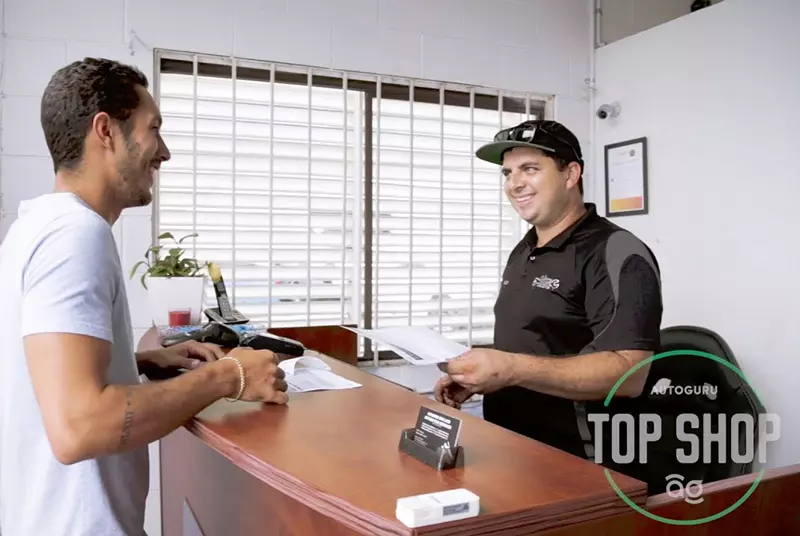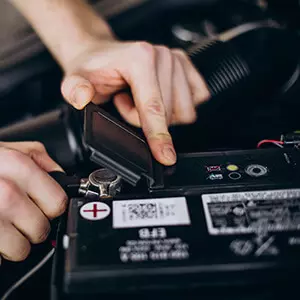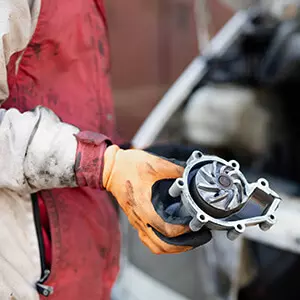Car Issue Diagnosis and Investigations
Analogies are helpful for understanding different concepts and one way to think of a mechanic, is like a doctor for your vehicle. When your vehicle isn’t running smoothly, it’s often like your car is trying to tell you something’s wrong. A car issue diagnosis helps pinpoint the root cause of the issue, ensuring that your car gets the right treatment and gets back on the road safely and efficiently.
Great communication, honest pricing, excellent customer service
In addition to car servicing, we’re a one-stop service centre. Qualified mechanics also carry out repairs to brakes, suspension, steering, air conditioning and much more. We use high quality parts and oils, provide excellent customer service, and we ensure our servicing processes are in line with your car manufacturer’s warranty.
Get a quote
Diagnosing car problems requires knowledge and experience
Doctors have access to tools and reports like blood pressure monitors and various test results to help put together a picture of what might be wrong with our bodies.
Similarly, mechanics have diagnostic scan tools that can help identify the location of problems in your vehicle.
But in both examples, tools only provide part of the picture. The knowledge and experience of a doctor is often necessary to form an accurate diagnosis of a health condition.
And the knowledge and experience of a mechanic is often required to accurately diagnose an issue with a car. It’s not a skill that can be taught overnight.
Trouble codes and warning lights
As you are most likely aware, modern vehicles have a network of computers that monitor all the different systems. These days, our cars are clever enough to tell us when something is not right.
When there’s a problem, the computer triggers a trouble code, and a warning light will appear on the dashboard to alert the driver.
Diagnostic scan tools
This is where diagnostic scan tools come in. These are connected to the car to read trouble codes. Scan tools show specific trouble codes which indicate a fault in the area related to the code.
But that’s only the beginning of a diagnosis. It’s Step 1 of the process.
The mechanic now knows where the problem might be found, but not what the problem is.
Engine investigations
Another thing to take into consideration when it comes to diagnostic work is engine investigation. Diagnostic scan tools can’t tell us much when it comes to older cars and engine problems. Often, we need to take some things apart to have a proper look. This is where things can get tricky, because we tend to not like pulling engines apart to ‘take a look’ unless we really have to.
We prefer to diagnose issues with cars that we regularly service, because that way we have a head start. We have a better idea of the history of the car, the work that’s been done to it, and how it’s been looked after. This helps to give more confidence in a car issue diagnosis.
Determining the problem
Now the mechanic needs to use their diagnostic process and run tests to figure out the cause of the fault, that has triggered the code.
Here’s an example from our workshop:
P0420 is a very common trouble code. Catalyst efficiency below threshold (bank 1). Our most recent experience of this while servicing a Suzuki Swift (2008). Our customer had reported the engine “not running right at times” but by the time we saw the vehicle, the problem had gone away.
Unfortunately we commonly see that oxygen sensors have been replaced to try and fix this specific problem, and the most frustrating part is that replacing oxygen sensors is usually not the correct solution.
Based on our previous experience, we removed the ignition coils, leads and plugs for a visual inspection. One of the ignition coils showed evidence of “arcing” which will cause a misfire. Fairly simple solution in this case but the aftermath also included a failed catalytic converter. This could be seen on the live engine data through understanding how an oxygen sensor works.
Got an issue with your vehicle?
If you’ve got an issue with your car, in the first instance you can message our team and describe the issues you’re experiencing.
We are a small but busy workshop and our appointments are often booked a week in advance. It’s not safe or viable for us to interrupt our mechanics to offer advice over the phone.
We also need to do a visual inspection, listen to, and in many cases drive the car before we can make any assumptions about the cause of a problem. With that in mind, please give us as much info as possible via our contact form or get quote form so we can determine if we can help or not, and we can share an estimate of the fee involved to carry out an investigation and diagnosis so you are fully informed before you decide to go ahead.
Please note, we don’t take on all diagnostic jobs. As a result, if the problem you’re experiencing is not a good fit for our workshop, we’ll let you know right away, and recommend someone else if we can.
Our Promises

No Nasty Surprises
There will be no unexpected items on your invoice. There will be no unnecessary repairs done on your vehicle.

Friendly Service
You and your vehicle will be treated with respect. We’ll explain things without technical jargon.

Quality Parts and Oils
We use the best quality parts and oils (Penrite/Fuchs) as specified for each vehicle application. We want you to get the most out of each service and repair.
What Our Happy Customers Say About Us
Get a quote

